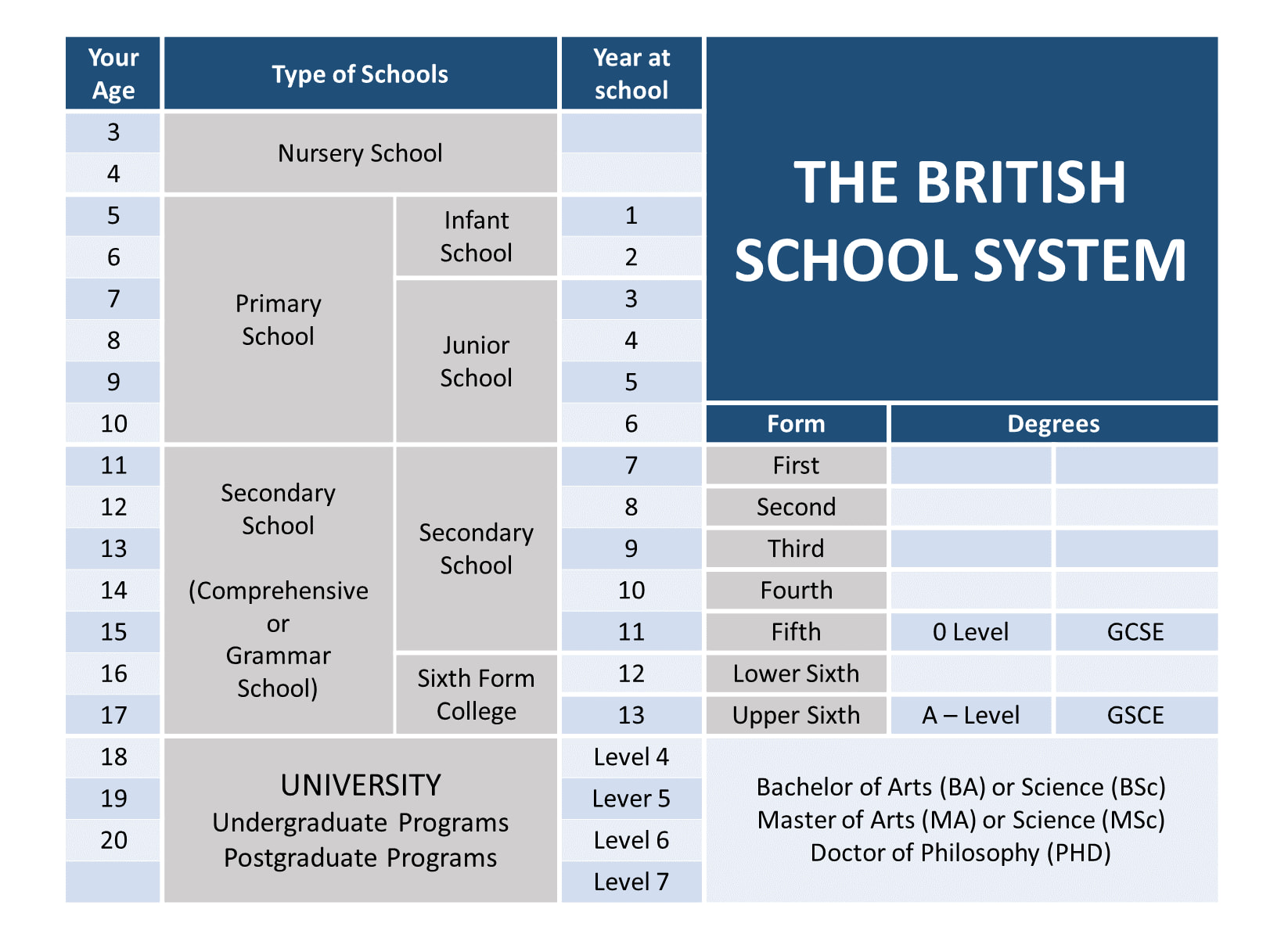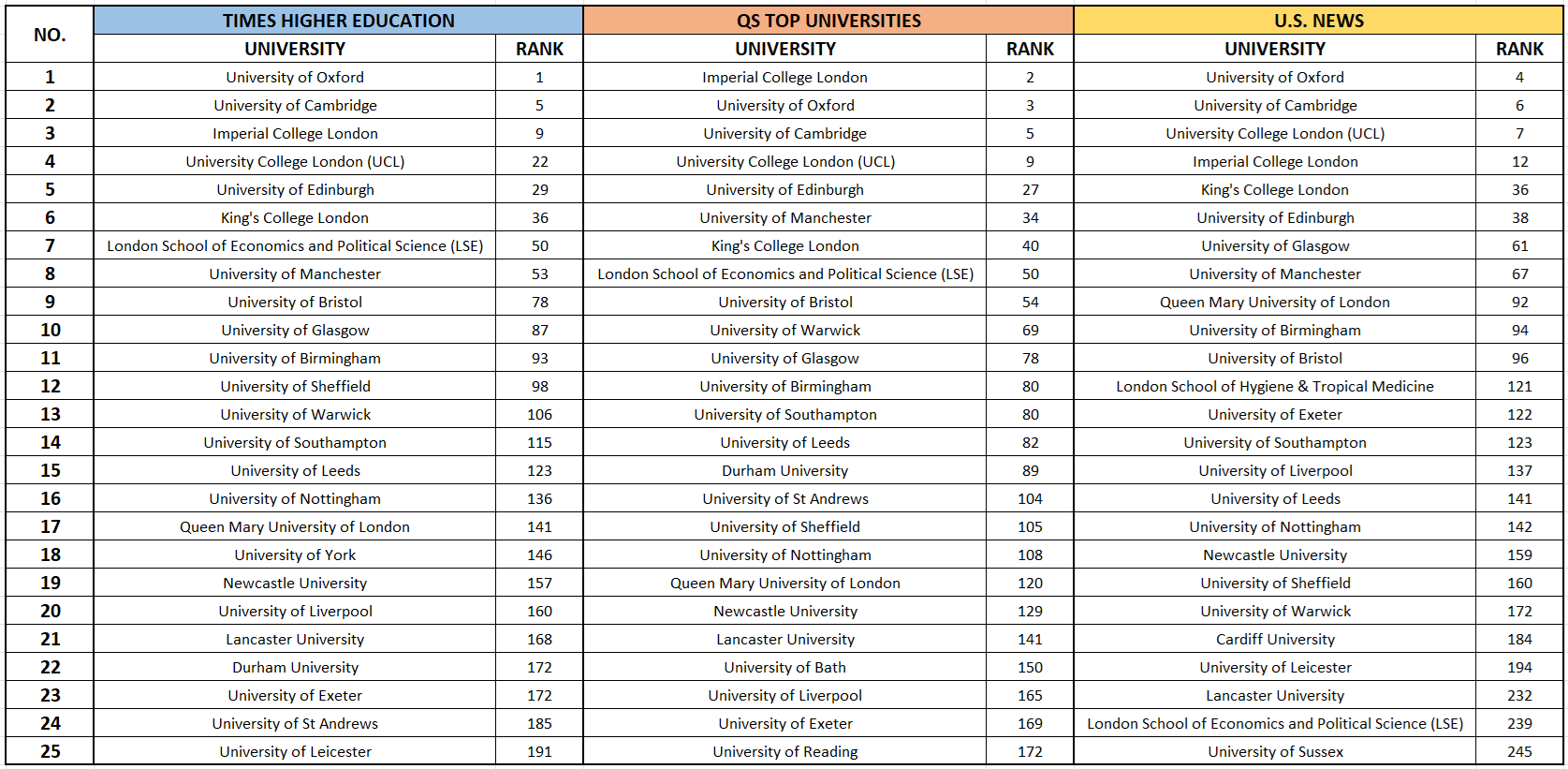UNITED KINGDOM
Why Choose the United Kingdom?
- Globally Recognized Educational Institutions
- Career and Job Opportunities
- Cultural Diversity and Native English
- Financial Support Opportunities
- Efficient Transportation and Travel Opportunities
Education System in the United Kingdom
Why Study Abroad?
Studying abroad goes beyond merely reading or practicing in a specific field, no matter your profession or branch. Those who have studied abroad represent a comprehensive set of values.
People who study abroad are individuals who leave their familiar surroundings, pursue their goals, and return having achieved them. They are seen as determined individuals who set goals, invest in those goals, take risks, act responsibly, and succeed. In a world where a large portion of society has never even traveled abroad, let alone studied there, people who adapt to a different culture and improve themselves truly deserve admiration.
Moreover, as mentioned earlier, studying abroad represents a unique set of values. These individuals are entrepreneurial, responsible, accustomed to multicultural environments, and enriched by diverse connections and opportunities. They have access to advanced techniques and knowledge, speak foreign languages, and use those skills for lifelong learning. Their capacity for socio-economic self-investment makes them stand out both in job interviews and social settings.
Why Choose the United Kingdom?
1. Globally Recognized Educational Institutions
The UK is home to some of the world’s top universities, including Oxford, Cambridge, and Imperial College London. Education from these institutions brings significant prestige in the global job market.
Each year, approximately 600,000 international students choose to study in the UK. These universities provide not only theoretical knowledge but also a robust infrastructure to accelerate your career with strong internship and professional connections. Moreover, with the 2-year Post-Study Work Visa (PSW) offered after graduation, you can explore international job opportunities or enhance your CV with programs like 1-year accelerated master’s degrees.
The UK also offers a wide range of English language and specialization programs for international students. Studying in the heart of Europe gives you the chance to obtain globally recognized diplomas.
2. Career and Job Opportunities
The UK is known for being home to one of Europe’s largest business hubs. London, as a leading global financial and technology center, offers graduates an extensive network and numerous career opportunities. With a strong foundation in fields such as STEM (Science, Technology, Engineering, Mathematics), the UK provides thousands of international students with internships and job opportunities annually. Similar to OPT in the US, students in the UK can work up to 20 hours per week during their studies to cover expenses and gain experience.
3. Cultural Diversity and Native English
The UK offers a rich cultural mosaic, bringing together students and professionals from around the world. Living among people from diverse nationalities fosters global awareness and understanding.
Graduating from a UK university connects you to a vast alumni network, strengthening your professional and academic connections worldwide.
As the birthplace of the English language, the UK provides a unique opportunity to learn English not just academically but also in daily life. It’s an ideal environment for those looking to improve quickly through language practice. Enhancing your English proficiency in your field can give you a competitive edge in the global business world.
4. Financial Support Opportunities
The UK offers prestigious scholarship programs for international students, such as Chevening and Commonwealth Scholarships. Many universities also provide financial support based on academic merit or financial need.
5. Efficient Transportation and Travel Opportunities
Located at the heart of Europe, the UK makes travel within the country and to other European nations easy. You can take a train to Paris or a short flight to Spain. Domestically, the UK boasts impressive natural beauty, historic towns, and vibrant cities, all accessible through fast and comfortable transportation options.
Education System in the United Kingdom
The education system in the UK differs slightly from that in Turkey. It includes 11 years of compulsory education until the age of 16. Preschool education, which is available for children aged 1-4, is optional. Students typically start primary school at the age of 4-5, with the first year commonly referred to as “Reception.” At the age of 11-12, they transition to secondary education.
Secondary education is more specialized. Students choose schools focused on specific areas of expertise and begin tailored learning paths. At the end of Year 11, students take the GCSE (General Certificate of Secondary Education) exams. Successful completion allows them to either enter the workforce directly or continue with academic or vocational education through programs like A-Levels or Sixth Form College. A-Levels or vocational Sixth Form programs provide two years of education beyond compulsory schooling, preparing students for university or professional careers.
Undergraduate degrees in the UK are typically three years long. However, some programs, such as “sandwich courses,” which include a year of work experience, extend to four years. Additionally, with the option of 1-year accelerated master’s programs, students can complete both undergraduate and master’s degrees in just four years.

Structure Scheme for Education System
(Source: Unibritannica)
The terminology for schools in the UK can be confusing due to differences in how terms are used compared to other countries like the US:
- Public Schools: In the UK, “public schools” are prestigious, fee-paying institutions with a rich history, such as Eton College or Harrow School. They are highly selective and known for their elite reputation.
- State Schools: These are government-funded schools that provide free education for all students.
- Private or Independent Schools: These are also fee-paying schools but differ from public schools in that they do not necessarily have historical prestige.
- Grammar Schools: These selective schools require entrance exams and provide specialized education for high-achieving students.
In the US, the terms differ: public schools refer to free, government-funded schools, and private schools indicate paid education options. This distinction is important when comparing the two education systems.
Highlights
Language:
English
Visa Types:
Tier 4 (Student) Visa – long-term visa granted to students aged 16 and above who are accepted into a full-time educational program.
Child Student Visa – issued for children aged 4-17 attending private schools in the UK.
Short-term Study Visa – designed for students who wish to pursue short-term language courses lasting between 6 to 11 months.
Graduate Route Visa (Post-Study Work Visa) – allows graduates who have completed a bachelor’s, master’s, or doctoral program in the UK to stay and work for a specific period.
Student Visitor Visa – intended for students who are attending courses shorter than six months and is suitable for English language courses or short certification programs.
Skilled Worker Visa – for graduates who wish to remain in the UK and work after their studies, requiring a job offer that meets specific salary criteria and an approved sponsoring employer.
Financing:
There are various funding options available, including scholarships, financial aid, grants, part-time work opportunities, and student loans. However, access to student loans can be quite limited, as non-resident students typically do not qualify for local student loan programs.
Costs:
Since education in the United Kingdom is fee-based for international students, expenses can vary significantly depending on the chosen school, program, and city. It is advisable to plan your expectations based on your budget and goals to ensure a realistic approach.
Exam:
Language Proficiency – The most commonly accepted language proficiency tests are IELTS and TOEFL. Among these, IELTS is the most frequently preferred.
Undergraduate Applications – A-Level results are highly significant for undergraduate applications. Additionally, international exams such as AP and IB are also accepted.
Graduate Applications – Exams such as GRE or GMAT may be required depending on the program’s specific requirements.
Specialized Fields – Specialized exams such as MCAT for medicine, LSAT for law, and PGCE for education are significant for specific fields of expertise.
There are no centralized exams like SAT or ACT for UK universities. However, some universities may require additional tests or assessments for specific programs. These requirements vary depending on the program. For example:
- BMAT (Biomedical Admissions Test): Required for entry into medicine and dentistry programs.
- UCAT (University Clinical Aptitude Test): A common test for students applying to medicine and dentistry programs.
- LNAT (National Admissions Test for Law): Used for applicants to law programs.
- MAT (Mathematics Admissions Test): Required for certain programs in mathematics and related fields, such as those at the University of Oxford.
- STEP (Sixth Term Examination Paper): An assessment test for mathematics-intensive courses, such as those at the University of Cambridge.
- TSA (Thinking Skills Assessment): Used by Oxford and some other universities for specific programs.
Top Universities
The table below is compiled from global university rankings conducted by Times Higher Education, QS Top Universities, and U.S. News. It lists the top 25 UK universities and their global rankings in each list.

UK – Top 25 Universities
There are far more prestigious universities in the UK than we can list here, with advanced educational opportunities and resources. Therefore, to ensure your choices meet your needs and expectations, we recommend utilizing a more detailed guide in your research or seeking professional consultancy services.
Let’s Plan Together
Feeling confused, unable to find what you’re looking for, or unsure where to start? Let us help you.
As a first step, take the Free English Placement Test below. Knowing your level is crucial for planning your preparation phase. Next, explore our Country Guides for insights into cities, schools, or career opportunities. Alternatively, you can improve your skills by taking advantage of our Courses.
Remember, when you reach beyond borders, you don’t just go far—you find your place in the world.
Go far. Live More.